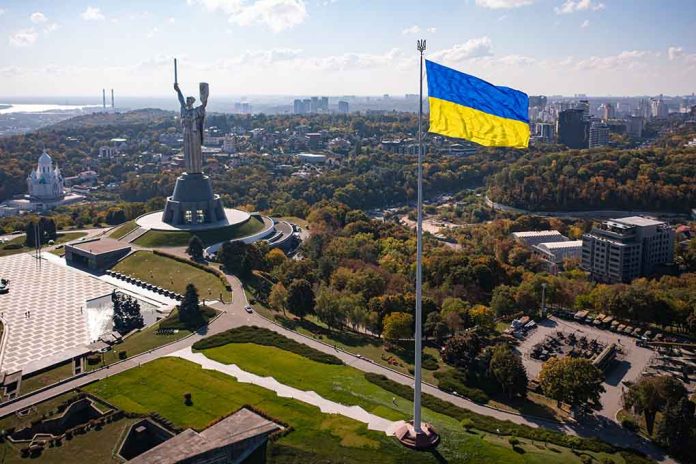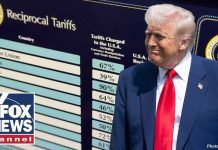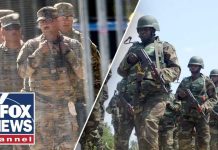
Serbian President Aleksandar Vucic’s first-ever visit to Ukraine revealed his nation’s precarious balancing act between Russian allegiance and Western ambitions, refusing to sign a declaration against Moscow despite warmly meeting with President Zelenskyy in Odesa.
Key Takeaways
- President Vucic made his first visit to Ukraine since the war began, attending a regional summit in Odesa while refusing to sign a declaration calling for increased sanctions against Russia
- Russia has accused Serbia of secretly supplying arms to Ukraine through NATO and African intermediaries, allegations that Serbia has promised to investigate
- Serbia maintains close ties with Russia, including energy dependence, while simultaneously pursuing European Union membership
- Vucic attended Russia’s Victory Day parade in Moscow earlier this year, drawing criticism from EU officials
- Despite geopolitical tensions, Vucic expressed gratitude to President Zelenskyy for his “exceptional hospitality” in Odesa
Serbia’s Diplomatic Tightrope
President Aleksandar Vucic’s surprise appearance at the Ukraine-Southeastern Europe Summit in Odesa marks a significant diplomatic maneuver in Serbia’s complex foreign policy. The visit, his first to Ukraine during his presidency, places Serbia in the uncomfortable position of navigating between its traditional Russian alliance and its aspirations for European Union membership. While attending the summit alongside other regional leaders, Vucic notably refused to sign the joint declaration that called for increased international support for Ukraine and discouraged aid to Russia, citing the mention of sanctions as his primary objection.
The Serbian president’s visit comes just months after he attended Russia’s Victory Day parade in Moscow, an action that drew sharp criticism from European Union officials. This diplomatic contradiction highlights Serbia’s precarious position as it attempts to maintain cordial relations with both Russia and the West. Despite these tensions, Vucic reportedly had a warm exchange with Ukrainian President Volodymyr Zelenskyy, offering support for rebuilding Ukraine while maintaining Serbia’s stance of military neutrality in the conflict.
Russian Accusations and Serbian Denials
Complicating Serbia’s diplomatic position are recent accusations from Moscow that Serbian defense companies have been supplying ammunition to Ukraine through NATO and African intermediaries. The Russian Foreign Intelligence Service (SVR) has made specific allegations regarding shipments of artillery shells and small arms ammunition intended to harm Russian forces, describing Serbian arms manufacturers as “profiting from the blood of fraternal Slavic peoples,” according to The Russian Foreign Intelligence Service (SVR).
“But I would like to once again express my full gratitude to President (Volodymyr) Zelenskyy for the exceptional hospitality here in Odessa,” said Aleksandar Vucic.
Serbian officials have denied direct arms sales to Ukraine while promising a thorough investigation into these allegations. Following discussions with Russian President Vladimir Putin, Vucic agreed to conduct a joint investigation into the matter. This diplomatic row places additional strain on Serbia’s already complicated relationship with Russia, a country it relies on heavily for energy supplies and has notably refrained from sanctioning following the invasion of Ukraine.
The Realities of Serbian Foreign Policy
Serbia’s geopolitical position reflects the stark realities faced by smaller nations caught between major global powers. While most European nations have aligned firmly with Ukraine and against Russia, Serbia remains one of the few European countries maintaining friendly relations with Moscow. This position is complicated by Serbia’s heavy dependence on Russian energy supplies and its historical cultural and political ties to Russia, balanced against its stated ambition to join the European Union, which requires alignment with EU foreign policy.
“VUCIC’S DELICATE BALANCING ACT IN ODESA: SERBIA’S FOREIGN POLICY DILEMMA,” described SERBIA’S PRESIDENT ALEKSANDAR VUCIC.
The strategic calculus for Belgrade remains fraught with contradiction. By refusing to sign the Odesa declaration while physically attending the summit, Vucic attempts to signal continued independence while not entirely burning bridges with Kyiv. Vucic himself acknowledged the difficulties of Serbia’s position when he described the decision as not being “easy and simple for us.” This continuing diplomatic dance reveals the limitations of Serbia’s neutrality policy as the war in Ukraine approaches its third year, with pressures mounting from both East and West for clearer alignment.



